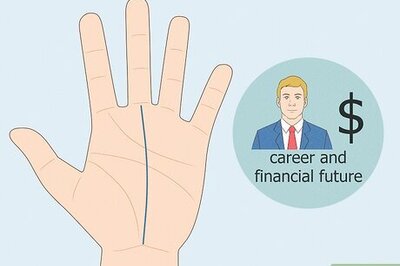
views
Health officials in the states of New Jersey, Michigan, and Massachusetts are warning people of the mosquito-borne disease Eastern Equine Encephalitis (EEE), a virus that can potentially cause brain swelling leading to death. According to the New Jersey Department of Health, the summer's first case of EEE was in August, and urged residents to take necessary protection from mosquitoes.
A statement issued by the New Jersey Department of Health also urged clinicians to consider patients showing symptoms of EEE and contact their local health department for testing. Laboratory testing for EEE is currently only available at the State Public Health and Environmental Laboratories, in the US.
According to the statement released, EEE was detected in 22 mosquito samples and in 3 horses in the southern and eastern regions of the state. The Michigan Department of Health released their own statement as well, where 3 cases of EEE are suspected in residents of Kalamazoo and Berrien counties in southwest Michigan.
Dr Mary Grace Stobierski, MDHHS state health veterinarian, Michigan Department of Health, in a statement said that the cases, along with those confirmed in horses and deer in the state, stress the importance of taking precautions against mosquito bites.
A statement released on August 26 says that 6 cases of EEE have been confirmed in horses across three southwest counties. None of the animals affected were vaccinated against the virus and all of them perished.
Massachusetts too has seen more EEE activity than normal, with four reported infections and one death as a result of the virus. The state has issued an informational alert on their website, which said increased activity of mosquitoes at dusk makes those outside more likely to contract the virus.
As per the advisory of all three states, avoiding mosquito bites and lowering risk of contracting the virus is of utmost importance. They suggested using insect repellent, wearing protective clothing, and installing screens on doors and windows to reduce risk of contraction.
EEE has approximately 30 percent mortality rate and survivors often continue having neurological problems. Spread by infected mosquitoes, incubation period for the virus ranges from 4 to 10 days and can result in either systemic or encephalitic illness.
Abrupt onset of chills, fever, malaise, arthralgia, and myalgia are a few symptoms of systemic infections, while fever, headache, irritability, restlessness, drowsiness, anorexia, vomiting, diarrhea, cyanosis, convulsions, and coma characterise encephalitic patients.



















Comments
0 comment